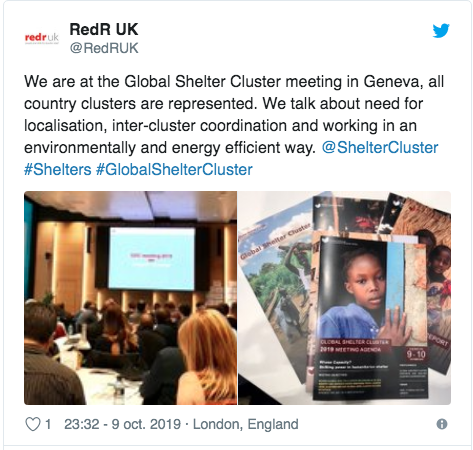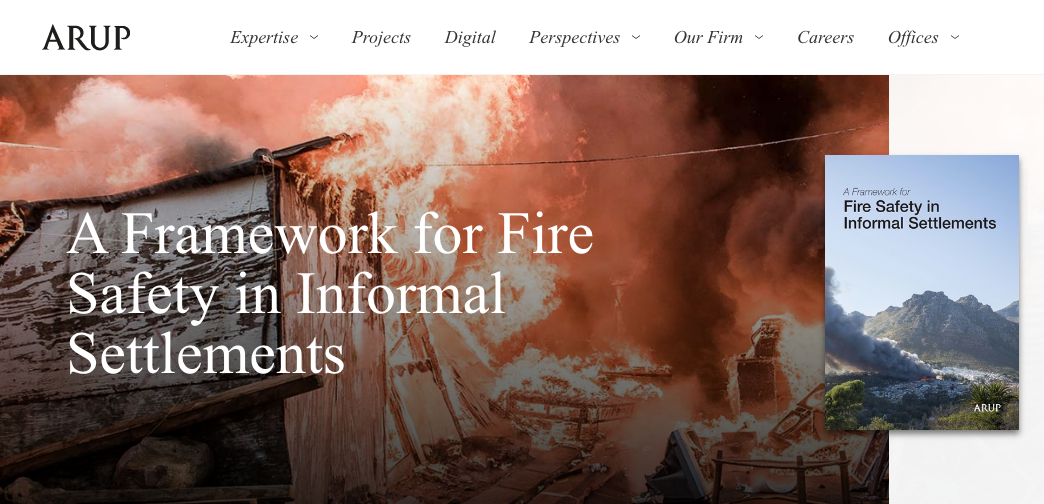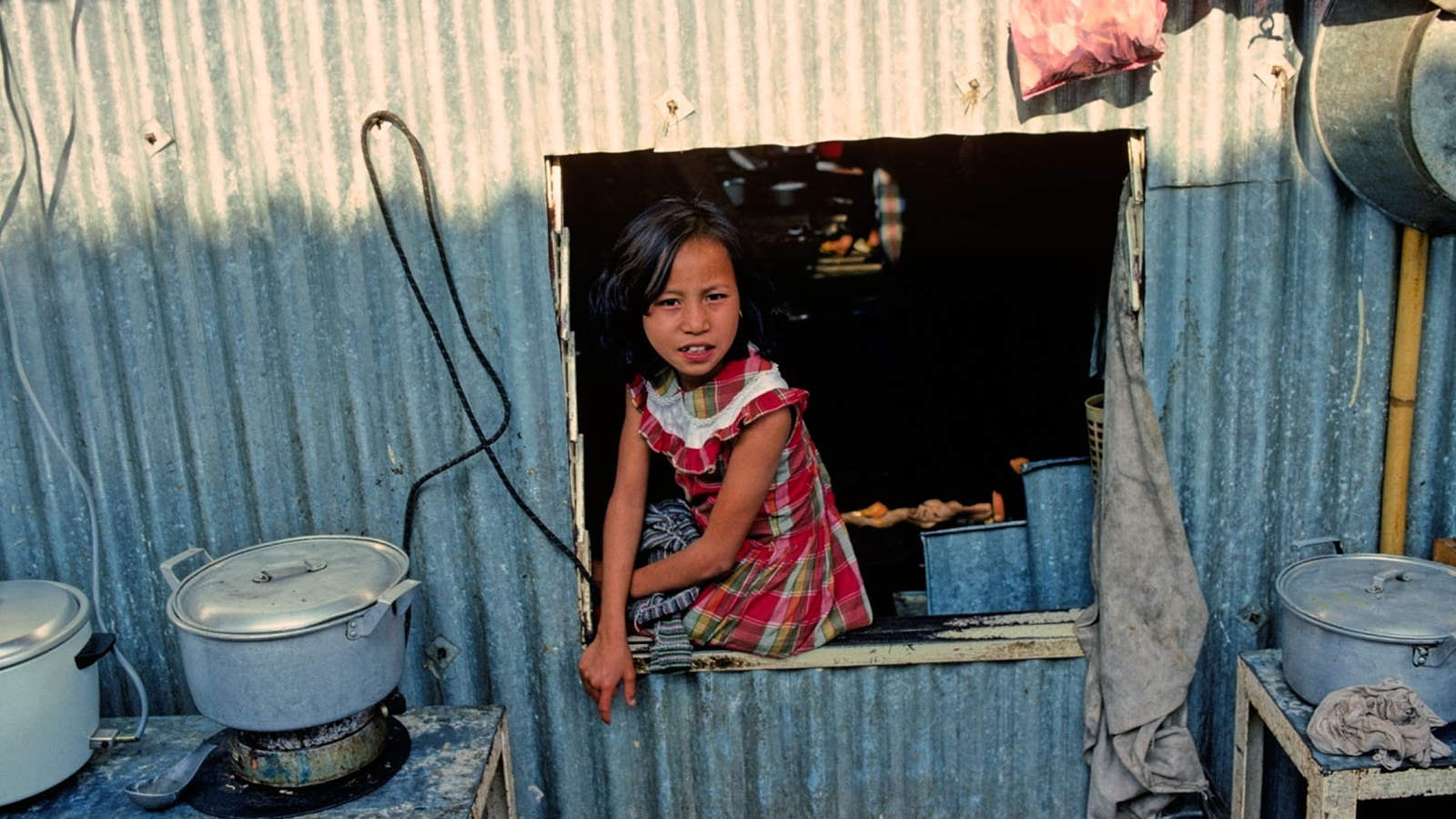“The current focuses in the shelter cluster reflect wider trends in the humanitarian sector, and five areas continued to stick out for me. Firstly, an emphasis on the environment and the need for the shelter sector to prioritise energy efficiency, reduce the usage and prevalence of single-use plastics, and champion local over international procurement. Secondly, improving inter-cluster coordination and reducing the somewhat siloed working of the clusters. Alongside this, the continued trend towards improving urban humanitarian response including area-based approaches and working in a multisectoral way. Fourthly, broadening and improving the efficiency and usage of cash-based approaches. And finally, a stronger move towards localisation and a true and transparent shifting of power away from INGOs – aiming, as the Secretary General said at the World Humanitarian Summit in 2016 to be “as local as possible, and as international as necessary”, rather than the other way round.”
RedR UK has a long history supporting and partnering with the Shelter Cluster. The need for continued capacity and skills development, of both the global shelter humanitarian system as well as local and national NGOs, came out as a clear need in the sector and something that RedR UK can continue to offer training and capacity development support on.

No doubt this is a shifting and challenging time for the humanitarian sector: new, and different stakeholders in the private and government sectors are increasingly involved in the humanitarian scene and collaboration is crucial; the rise of data usage and digital identities can bring opportunities as well as challenges; international environments are becoming increasingly difficult to work in and there is an increasing public shift away from humanitarian support. It was exciting to see, however, lots of new initiatives and exciting innovations at the Global Shelter Cluster meeting to try and combat some of this and continue to make the shelter sector relevant. Here’s some of the developments and initiatives Katie found interesting at the meeting!
1. “Airbnb did a workshop about their new OpenHomes initiative, where people can be hosted in airbnbs for free when a disaster hits. In the early stages of a disaster, it is often the community, friends, family who host a lot of affected people, so this is a way of scaling this up and rewarding host communities as well as providing shelter that already exists to displaced people (rather than building new, often temporary ones). For me working with businesses like Airbnb is crucial and the idea of empowering host communities and encouraging local resilience is a real step towards the localisation agenda.”
2. “Our corporate partner Arup presented the framework they are developing on fire safety in informal settlements, a huge issue in both urban areas and rural camps and one which can have devastating consequences. Creating standards, awareness and taking into account fire safety in shelter planning can help to mitigate against these risks, and it’s great to see advances in this area.”

3. “The Shelter Cluster Environment Community of Practice are working to improve the clusters’ environmental and energy footprint, ensuring we are contributing less to the problems we are trying to solve. There has also been a policy statement on single-use plastics released earlier this year."
Combatting the climate emergency has been an increasing focus of ours here at RedR UK, with our recent development of a Climate Change and DRR course, and it is fantastic to see more attention given to our own contributions to the crisis.

Katie Bitten is a Project Coordinator at RedR UK, working on their Funded Programmes team. She specialises in organisational capacity building and urban humanitarian response projects, such as Africa Catalyst aiming to strengthen the Federation of African Engineering Organisations, a professional engineering body in Nigeria.